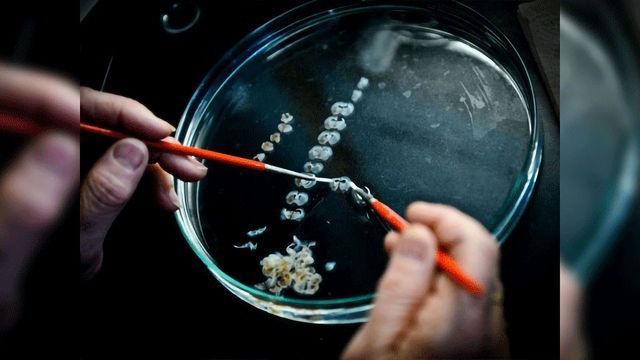Trending News
News

News
Mosaic Neurons May Explain Parkinson's Mystery
Scientists have identified a potential explanation for the mysterious death of specific brain cells seen in Alzheimer’s, Parkinson’s and other neurodegenerative diseases. The new research suggests that the cells may die because of naturally occurring gene variation in brain cells that were, until recently, assumed to be genetically identical.

News
What Makes Some People Creative Thinkers and Others Analytical?
Are you a more creative or analytical thinker?

News
A Fine Balance Between Excitation and Inhibition
Researchers have clarified, for the first time, the mechanism behind a very rare brain disorder called MICPCH (microcephaly, disproportionate pontine and cerebellar hypoplasia) syndrome in animal models.

News
Reversing Memory Loss Linked to Depression and Aging
New therapeutic molecules developed at Toronto’s Centre for Addiction and Mental Health (CAMH) show promise in reversing the memory loss linked to depression and aging.

News
Possibilities for Stem Cell Therapy in Parkinson's Highlighted
Stem cell technologies show promise for treating Parkinson's disease and may play an increasing role in alleviating at least the motor symptoms, if not others, in the decades to come.

News
Brain Clock Ticks Differently in Autism
The neural ‘time windows’ in certain small brain areas contribute to the complex cognitive symptoms of autism, new research suggests. In a brain imaging study of adults, the severity of autistic symptoms was linked to how long these brain areas stored information. The differences in neural timescales may underlie features of autism like hypersensitivity and could be useful as a future diagnostic tool.

News
"Turn-on" Fluorescence Shines Light on Protein Misfolding
A team of researchers from Penn State and the University of Washington re-engineered a fluorescent compound and developed a method to simultaneously light up two different proteins as they misfold and aggregate inside a living cell

News
Why a Neuronal "Call for Help" Leads to an Inflammatory Cascade in Parkinson's Disease
Working in two fruit fly models of Parkinson’s disease, researchers at the Buck Institute have characterized a novel molecular mechanism that orchestrates a harmful cascade of inflammatory signaling and demonstrated that its disruption protects neurons as they age.

News
How Music Activates Our Brain's Reward Center
New research shows the musically unexpected activates the reward center of our brains, and makes us learn about the music as we listen - the first evidence that musically elicited reward prediction errors cause musical pleasure. It is also the first time an aesthetic reward such as music has been shown to create such a response.

News
Why Does Bribery Work?
A new study from Carnegie Mellon University suggests that greed, and not the willingness to return the favor, is the main reason people give in to bribery. But the research also finds there are times when the almighty buck can be ignored and effects of a bribe can be lessened.
Advertisement




